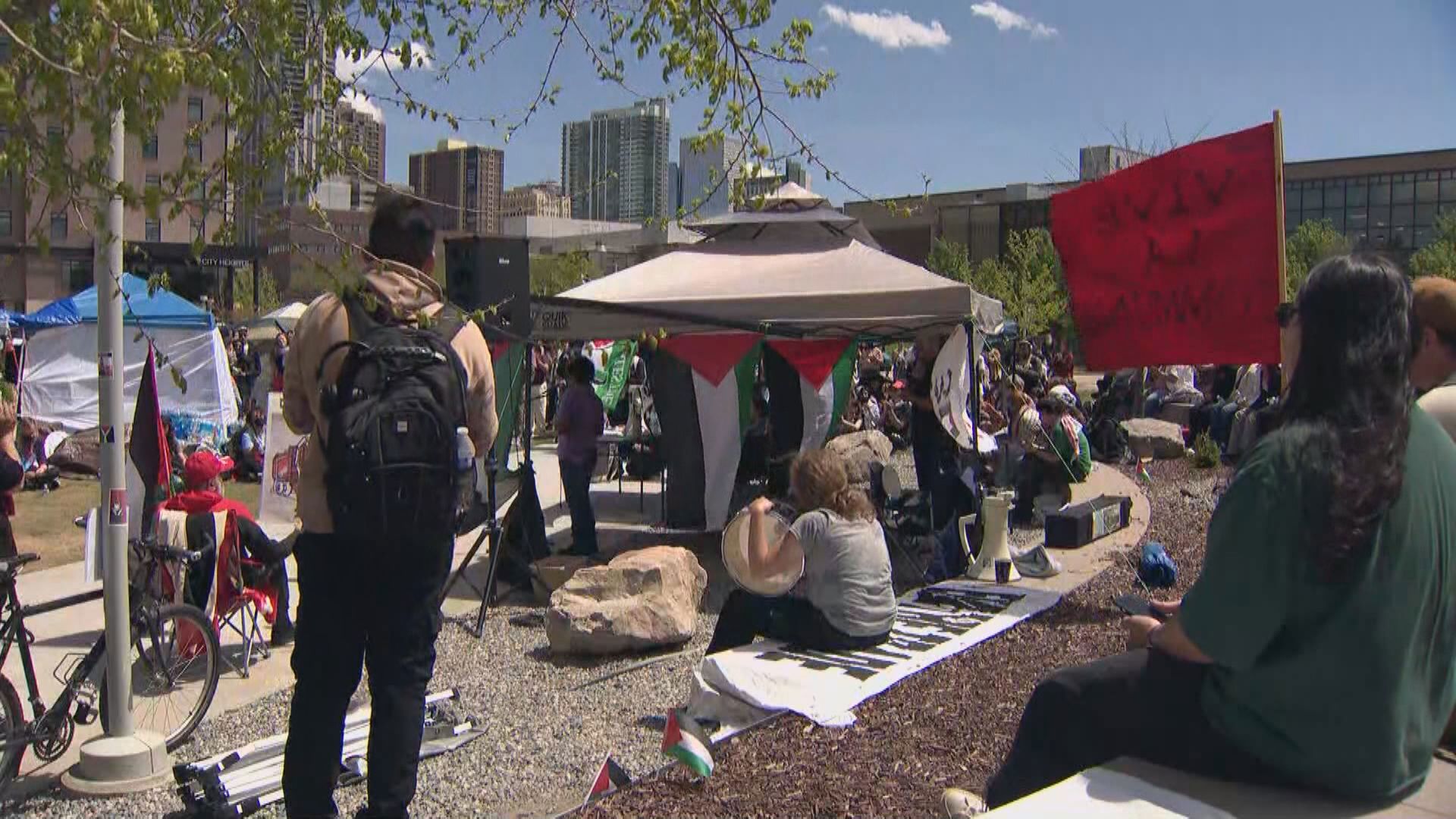DENVER — From Denver's Auraria Campus to Columbia University, students around the country are parking themselves on college campuses to protest for Palestinian human rights that have been impacted by the Israel-Hamas war.
"We haven't seen protests of this magnitude in the U.S. around a war since the invasion of Iraq in 2003," said Dr. Michael English, Peace, Conflict and Security Program Director at CU Boulder.
English said student protests surrounding everything from the Civil Rights Movement to the Vietnam War and Occupy Wall Street have filled college campuses for decades. Students are active, they're educated, and if they feel their opinion is being ignored, English said, they're willing to push back on big issues.
"I think if you look back at the 1960s, there are certainly a lot of parallels in terms of the frustration young people are feeling at the slow pace of change," English said.
But many Americans haven't always supported students exercising their constitutional right.
"It was not something that was celebrated all across the board, right?" English said. "Even, the tragedy at Kent State, there were plenty of people who uttered things that were not what we would think of as appropriate to what happened to those poor kids at Kent State."
While Americans like to celebrate the right to free speech, English said they're not always supportive of those practicing it.
“I think that America has a short memory in some ways when it comes to protest," English said. "We’re really good at celebrating people like Dr. King and thinking about how easy it was -- apparently it was -- to get women’s rights or civil rights in this country, but when we have to face up to the changes that were necessary to make those happen in the decades of struggle that it took for those to come about, we just get uncomfortable because it shows how much energy and suffering went into those different movements.”
While protests have evolved over the decades, shifting away from students taking over buildings and holding large-scale sit-ins, the way universities and police respond has changed, too.
In the 1980s and '90s, English said, police traded riot gear for their uniforms, engaging with protesters. That changed after 9/11, with a remilitarization of police, English said. And arrests at protests have grown common.
"I think for a lot of people who remember the 1960s and '70s, what they tell me is the sights of police on college campuses in the riot gear is very reminiscent of that time," English said. "And so we seem to have a lost a little bit of the knowledge we gained from the 1960s and '70s that perhaps a policing first response isn't the most appropriate way to deal with peaceful protest."
English said while an institution's response can inflame tensions or reduce them, protesters have proven over the decades that utilizing this constitutional right can help spark a dialogue, even change.
"And this history of protest is part of our democratic system," English said.
SUGGESTED VIDEOS: Latest from 9NEWS

